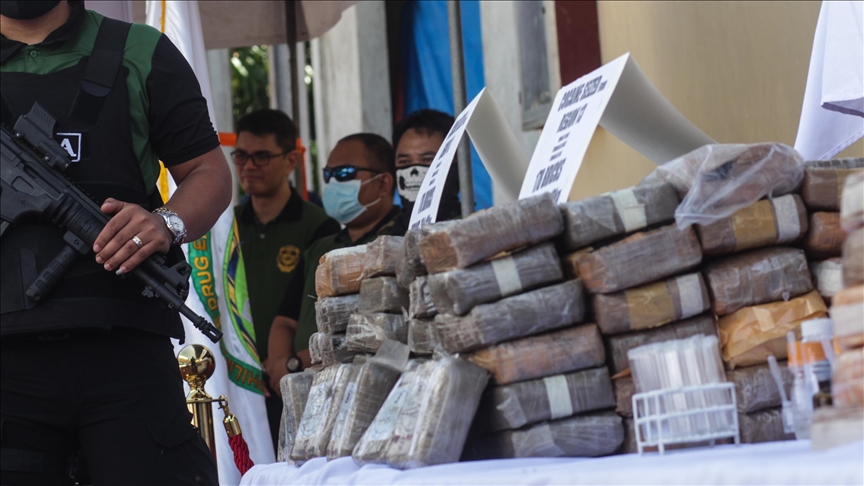‘Not welcome,’ Manila says as ICC resumes probe into Philippines’ ‘war on drugs’
'Open to dialogue but won’t stand any antics that question our sovereignty,’ says top official

ISTANBUL
Manila said Friday it will not accept “any antics" that "question our sovereignty” as the International Criminal Court (ICC) allowed prosecutors to resume an investigation into the so-called war on drugs launched by former President Rodrigo Duterte.
The ICC said it “is not satisfied that the Philippines is undertaking relevant investigations that would warrant a deferral of the court’s investigations on the basis of the complementarity principle.”
It added that various domestic initiatives and proceedings taken by Manila “do not amount to tangible, concrete and progressive investigative steps in a way that would sufficiently mirror the court’s investigation.”
However, the administration of President Ferdinand Marcos Jr. said the ICC has “no compulsory process in the country.”
“They will not even be empowered to issue subpoenas in the country. They have not even coordinated with us about it,” said Jesus Crispin Remulla, secretary of the Philippines Justice Department.
The “war on drugs” was launched in June 2016 under Duterte.
Duterte conducted large-scale arrests of drug dealers and users and allowed police to kill every criminal and drug user.
In 2018, Duterte announced the country’s withdrawal from the Rome Statute, which took effect in March 2019 but the ICC said it “retains jurisdiction with respect to alleged crimes that occurred on the territory of the Philippines while it was a state party.”
Remulla told a news conference in Manila: “We’re willing to dialogue with them, but they cannot come in here and impose themselves upon us. That is a no … no.”
“I will not welcome them to the Philippines unless they make it clear that they will respect us in this regard. I will not stand for any of these antics that will tend to question our sovereignty. We will not accept that,” he added.
In September 2021, the ICC opened a probe into alleged crimes against humanity committed between Nov. 1, 2011, and March 16, 2019, during the “war on drugs.”
However, the ICC halted the probe on Nov. 18, 2021, after objections were raised by Manila.
The ICC prosecutor, however, sought a revival of investigations on June 24, 2022
Duterte has said he “would never allow foreigners to sit in judgment of him as long as Philippine courts are willing and able to do so.”
61 killed last year
Official data from Manila shows there is no letup in the so-called war against illegal drugs with more than 60 people killed in the last six months of last year.
“Between July 1 and Dec. 31, 2022, 61 alleged drug offenders were slain in the government’s anti-illegal drug operations,” Col. Jean Fajardo, Philippine National Police (PNP) spokesperson, said earlier this month.
“That includes joint operations with the Philippine Drug Enforcement Agency,” he added.
But data from Dahas, a monitoring project run by the University of the Philippines, revealed: “There were 175 drug-related killings in the country during Marcos’ first few months as President, or between 12 noon of June 30 and December 31, 2022.”
“This brings the total drug-related death toll to 324 in 2022 – a year that saw both the tail-end of the Duterte administration and the start of the Marcos administration,” it noted.
“State agents still top the assailants, and pushers the top targets but hotspots have shifted from the National Capital Region and Negros Occidental to Davao City and Cebu,” said the group.








